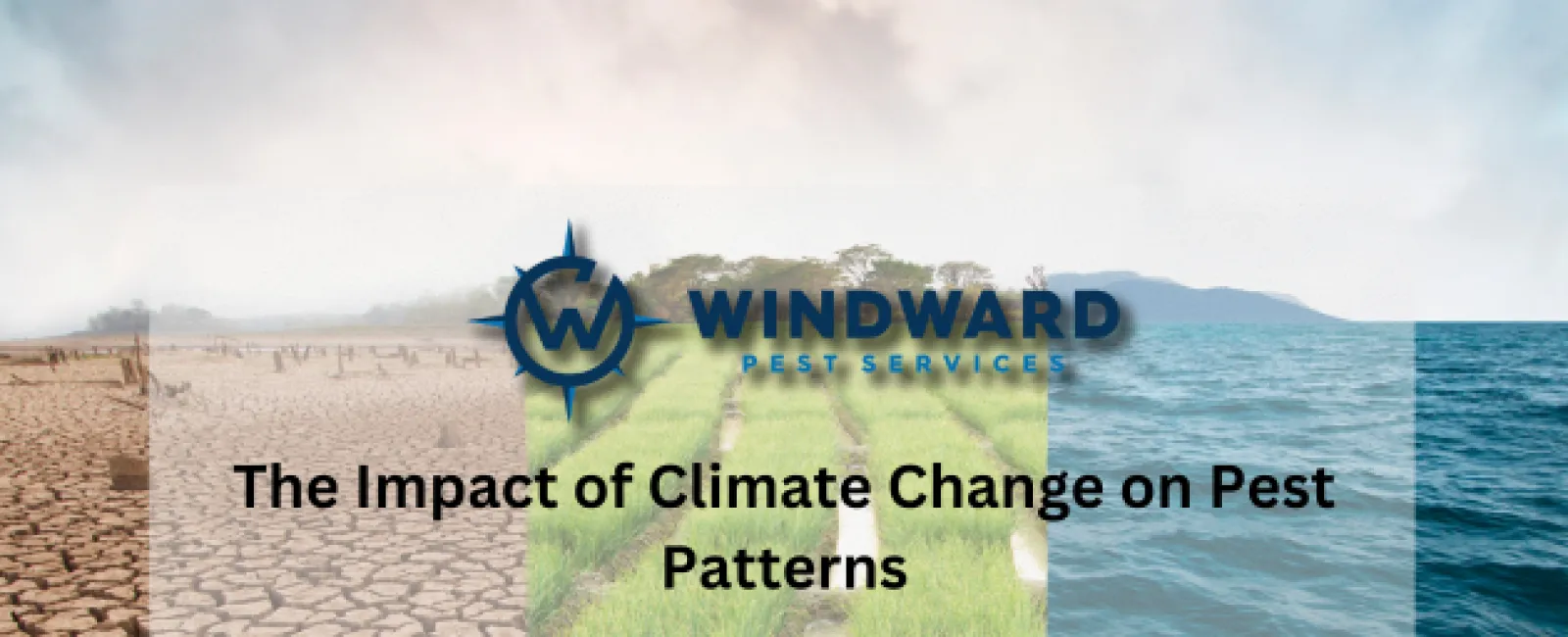Climate change is a global phenomenon affecting various aspects of the environment, including the behavior and distribution of pests. In Atlanta, pest control has become increasingly challenging as warmer temperatures, altered precipitation patterns, and extreme weather events create ideal conditions for pest proliferation. Understanding how climate change influences pest patterns is crucial for effective pest management strategies. Windward Pest Services is committed to staying ahead of these changes to provide the best interior and exterior pest treatments in Atlanta. This article delves into the impacts of climate change on pest patterns, the specific challenges faced in Georgia, and the importance of proactive pest inspections and treatments.
Understanding Climate Change and Its Effects on Pest Behavior
Climate change refers to significant and lasting changes in weather patterns over extended periods. These changes are primarily driven by human activities, such as the burning of fossil fuels, deforestation, and industrial processes, leading to increased concentrations of greenhouse gases in the atmosphere. These changes have far-reaching impacts on ecosystems, including pest populations.
Temperature Increases
One of the most direct effects of climate change is the rise in average temperatures. Warmer temperatures can accelerate the life cycles of many pests, leading to more frequent breeding and larger populations. In Atlanta, where summers are already hot and humid, additional temperature increases can exacerbate pest problems. For example:
- Mosquitoes: Warmer temperatures shorten the development time of mosquito larvae, leading to more generations per year. This can increase the prevalence of mosquito-borne diseases such as West Nile virus and Zika virus.
- Termites: Termites thrive in warm environments. Higher temperatures can extend their active seasons, increasing the risk of infestations in homes and businesses. Georgia termites, particularly the Formosan subterranean termite, can cause significant structural damage if not properly managed.
Changes in Precipitation Patterns
Climate change also affects precipitation patterns, leading to more intense and frequent rainfall or prolonged droughts. These changes can influence pest habitats and behavior in various ways:
- Increased Rainfall: Heavy rains can create standing water, providing breeding grounds for mosquitoes and other water-dependent pests. Additionally, excessive moisture can attract pests such as ants, cockroaches, and rodents seeking shelter.
- Drought: Prolonged dry periods can drive pests indoors in search of water and food. Rodents, in particular, are known to invade homes and commercial properties during droughts.
The Impact on Pest Patterns in Georgia
Georgia's diverse climate and ecosystems make it a hotspot for various pests. Climate change is expected to alter the distribution and behavior of these pests, posing new challenges for Atlanta pest control services.
Shifts in Pest Distribution
As temperatures rise, some pests may expand their ranges northward or to higher elevations. This can introduce new pest species to areas where they were previously absent, creating additional management challenges. For example:
- Southern Pine Beetle: This destructive pest of pine trees is typically found in the southern United States. However, warmer temperatures may allow it to move into northern parts of Georgia, threatening the state's valuable pine forests.
- Kudzu Bug: Native to Asia, the kudzu bug has established itself in the southeastern United States, including Georgia. Climate change may facilitate its spread to new areas, affecting crops and ornamental plants.
Extended Pest Seasons
Warmer temperatures and altered precipitation patterns can extend the active seasons of many pests. This means longer periods of pest activity, requiring more frequent inspections and treatments. For instance:
- Ants: Ants, including fire ants and Argentine ants, can remain active for more extended periods, leading to more frequent invasions of homes and businesses.
- Cockroaches: Cockroaches, known for their resilience, can thrive in warmer environments and may require year-round control efforts.
The Importance of Proactive Pest Inspections and Treatments
Given the changing pest patterns due to climate change, it is crucial for homeowners and businesses in Atlanta to adopt proactive pest management strategies. Windward Pest Services offers comprehensive pest inspections and treatments to address these evolving challenges.
Regular Pest Inspections
Regular pest inspections are essential for early detection and prevention of infestations. Windward Pest Services conducts thorough inspections of both interior and exterior areas to identify potential pest entry points and harborage sites. Early detection allows for timely interventions, reducing the risk of widespread infestations and costly damage.
Integrated Pest Management (IPM)
Integrated Pest Management (IPM) is a holistic approach that combines multiple strategies to manage pests effectively. Windward Pest Services employs IPM principles, which include:
- Monitoring: Regular monitoring of pest activity and environmental conditions helps in understanding pest behavior and identifying trends.
- Prevention: Implementing preventive measures, such as sealing entry points, removing food and water sources, and maintaining proper sanitation, reduces the likelihood of infestations.
- Control Methods: Using a combination of chemical and non-chemical control methods, including baits, traps, and biological controls, ensures effective pest management while minimizing environmental impact.
Tailored Pest Treatments for Atlanta Homes and Businesses
Windward Pest Services understands that each property is unique and requires customized pest control solutions. Our experienced technicians are trained to address the specific pest challenges faced by homeowners and businesses in Atlanta.
Residential Pest Control
For residential properties, Windward Pest Services offers comprehensive pest control plans that include regular inspections, treatments, and preventive measures. These plans are designed to protect homes from common pests such as ants, termites, cockroaches, and rodents.
- Termite Treatment: Termites pose a significant threat to homes in Georgia. Windward Pest Services provides advanced termite treatments, including liquid termiticides and baiting systems, to eliminate existing infestations and prevent future ones.
- Mosquito Control: Mosquitoes are a common nuisance in Atlanta, especially during the summer months. Windward Pest Services offers mosquito control programs that target breeding sites and adult populations, reducing the risk of mosquito-borne diseases.
Commercial Pest Control
Businesses in Atlanta face unique pest challenges that can impact their operations and reputation. Windward Pest Services offers tailored commercial pest control solutions to safeguard businesses from infestations.
- Restaurant and Food Service Pest Control: Food service establishments are particularly vulnerable to pests such as rodents, cockroaches, and flies. Windward Pest Services provides comprehensive pest management programs that comply with health regulations and ensure a pest-free environment.
- Office and Retail Pest Control: Pests in office buildings and retail spaces can disrupt operations and harm customer satisfaction. Windward Pest Services offers customized pest control plans that address the specific needs of commercial properties.
The impact of climate change on pest patterns presents significant challenges for pest control in Atlanta. Warmer temperatures, altered precipitation patterns, and extreme weather events create favorable conditions for pests to thrive, necessitating proactive and adaptive pest management strategies. Windward Pest Services is committed to providing top-notch Atlanta pest control, including thorough pest inspections, integrated pest management, and tailored treatments for both residential and commercial properties. By staying ahead of these changes and implementing effective pest control measures, Windward Pest Services ensures that Atlanta homes and businesses remain protected from the evolving threat of pests.

